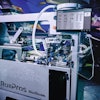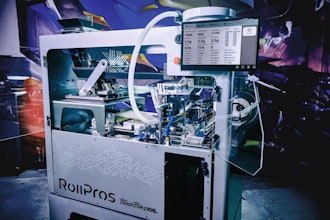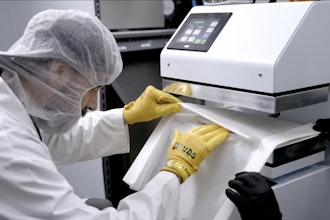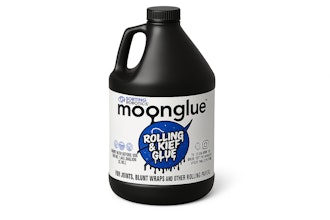
So, you decided to acquire new equipment for your cannabis cultivation or processing facility. You’ve done the Return-on-Investment Analysis (ROI) and have concluded that acquiring new equipment will reduce costs, increase efficiencies, or allow you to enter new markets, and hopefully all three. Business is growing, but cash is tight, and there are conflicting demands on your budget – adding more workers, promoting a “house brand,” or expansion into a neighboring state.
An obvious alternative is to lease or finance the equipment. Seems simple right? Well yes, but equipment leasing in the cannabis industry requires some planning, preparation, and effort. Obviously, the bigger the ask, the bigger the task – whereas smaller purchases can often be expedited, larger investments will require a more comprehensive underwriting process and more effort on your part. And start-ups, small- and medium-sized enterprises (SME) are disadvantaged against the larger, better-financed Multi-State Operators (MSOs).
As a start, you must identify what equipment you need to meet your goals. There are often dozens of vendors with competing equipment (think lighting), but sometimes limited alternatives for more specialized equipment (such as confectionery). You need to research, contact vendors, attend trade shows, and negotiate a price. Oh, you also need the cash to purchase the equipment you need.
Some vendors have in-house financing (often “white labeled” and provided by a third party), but most do not. So, it’s time to go into the equipment lease finance market to find a lessor/lender that can provide you with the necessary financing to acquire the equipment. Whether you are doing a lease (where the financier is “owner” of the equipment, and the operator pays rental payments) or a financing (where the borrower has title to the equipment and borrows money from the lender) you need to be prepared.
First, make sure that your financial reporting is up to snuff. Remember, whether a “lease” or a “financing,” the lender/lessor will be evaluating your ability to repay the financing. Although the financing will be secured by the equipment itself (and other assets and guarantees, as discussed below), your ability to repay out of cashflow is the key standard above all else. So, make sure that your financial forecast is reasoned, defensible and accurate, and you can demonstrate the ability to repay the financing during its term.
Do you have other outstanding debt? Is your “cap table” accurate and does it articulate a clear picture of other obligations and loans that are outstanding? Is the corporate structure understandable so that repayment obligations can be traced to the appropriate entities? This issue is often acute in the cannabis industry as state laws and regulations often require convoluted and opaque corporate structures. Financiers want clarity. Help them help you.
Plus, tax returns, bank statements, corporate documents, insurance policies, credit reports, background checks, etc., etc. You get the idea. Lenders want to know a lot about you and your company so it’s best to get your “corporate house” in order before seeking financing.
In many cases, particularly in larger equipment purchases, financiers will request personal or corporate guarantees, most certainly to cover “bad acts” (i.e., fraud, illegality), but often to secure repayment as well. Even if your personal wealth outside the ownership of the company is scant, a guarantee at minimum provides incentive for corporate repayment. Be prepared for the discussion and resigned that it is often part of the package.
Although the primary collateral is the equipment itself, in larger transactions it is common to grant additional collateral including other equipment, real estate, licenses and even inventory. We all know that equipment quickly depreciates so that the “resale” or “orderly disposition” value of the financed equipment in later months/years is a fraction of the original cost. Hence, additional collateral acts as lender protection against default.
Depending on the financing entity and the equipment, you will also need some cash. Financing is typically limited to 70% - 85% of the MSRP for new equipment and even less for used equipment (yes, you can finance used equipment…sometimes). And the financing will only cover “hard costs” – the actual cost of the equipment – stripping out shipping, installation, wiring and ducting, and other “soft costs.”
Finally, be prepared for a management interview and legal documentation. Lenders like to know their borrowers – what is the experience, background, and competency of management? What products are currently produced and what growth plans are on the horizon? What state are you operating in, and do you have any plans for state expansion? Happily, legal documentation is typically fairly straightforward, but for larger, more complex financings there may be a need for the engagement of legal counsel.
In the end, it is really not that complicated. Any corporate growth requires a higher level of sophistication and increased attention to record keeping, forecasting, financial reporting, and strategic vision. The cannabis industry is a tough business. Everything seems stacked against you – over burdensome regulations, unfair taxation, state border limitations, and increased competition. Although the cost and effort of equipment leasing may seem daunting, what is the cost of NOT expanding your business? Of NOT keeping up with the competition? Of NOT utilizing your available cash for marketing, sales, and branding?
Andrew Kaye has been involved in all aspects of the financial services industry, as a fund portfolio investment manager, investment banker, family office investor and attorney. He has worked with start-ups on their first raise through global enterprises undertaking billion-dollar stock offerings and has significant investment experience in the cannabis industry. Kaye currently serves as Chief Communication Officer for Sweet Leaf Madison Capital and can be reached at [email protected].























